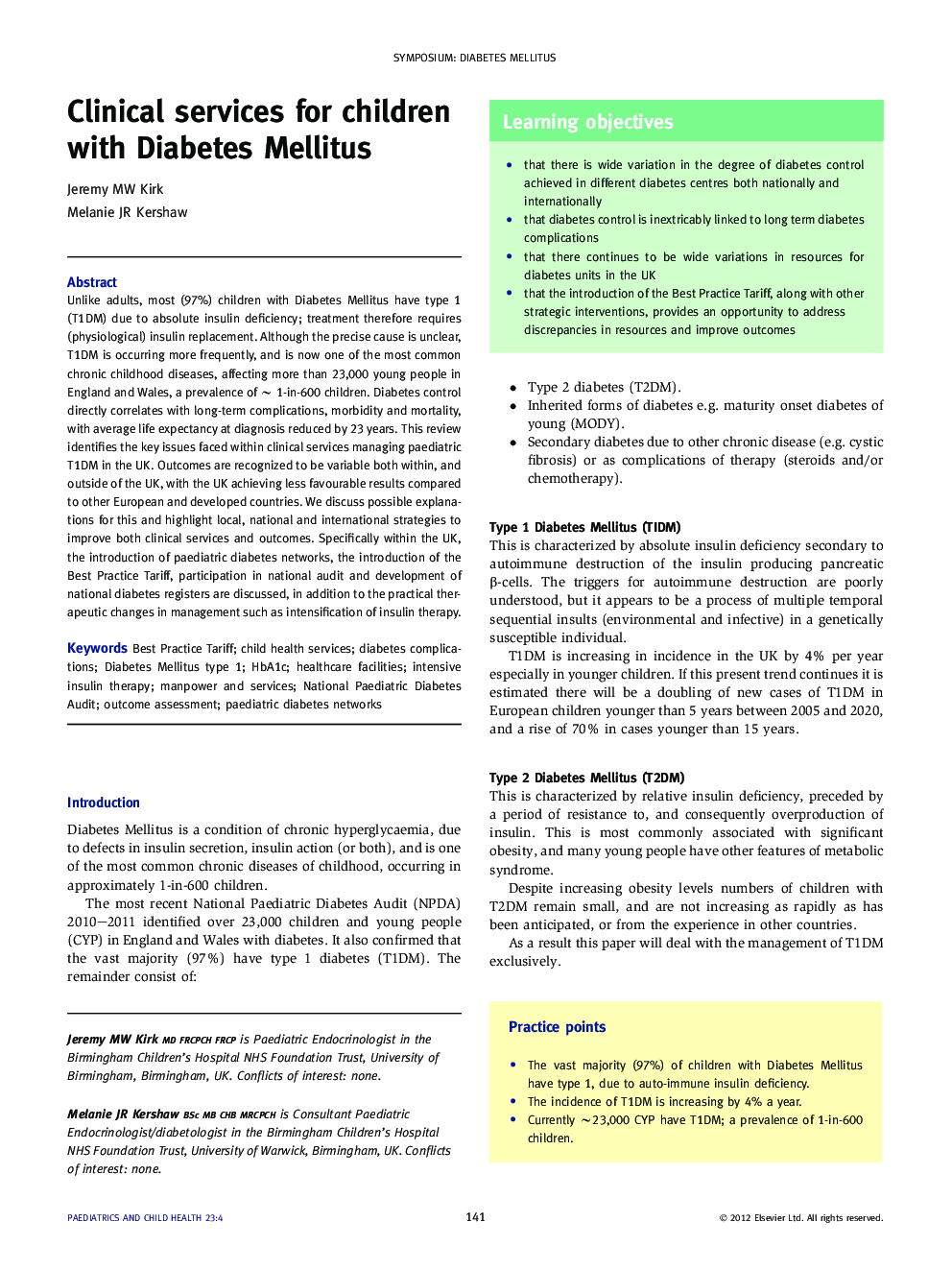| Article ID | Journal | Published Year | Pages | File Type |
|---|---|---|---|---|
| 4172364 | Paediatrics and Child Health | 2013 | 6 Pages |
Unlike adults, most (97%) children with Diabetes Mellitus have type 1 (T1DM) due to absolute insulin deficiency; treatment therefore requires (physiological) insulin replacement. Although the precise cause is unclear, T1DM is occurring more frequently, and is now one of the most common chronic childhood diseases, affecting more than 23,000 young people in England and Wales, a prevalence of ∼ 1-in-600 children. Diabetes control directly correlates with long-term complications, morbidity and mortality, with average life expectancy at diagnosis reduced by 23 years. This review identifies the key issues faced within clinical services managing paediatric T1DM in the UK. Outcomes are recognized to be variable both within, and outside of the UK, with the UK achieving less favourable results compared to other European and developed countries. We discuss possible explanations for this and highlight local, national and international strategies to improve both clinical services and outcomes. Specifically within the UK, the introduction of paediatric diabetes networks, the introduction of the Best Practice Tariff, participation in national audit and development of national diabetes registers are discussed, in addition to the practical therapeutic changes in management such as intensification of insulin therapy.
